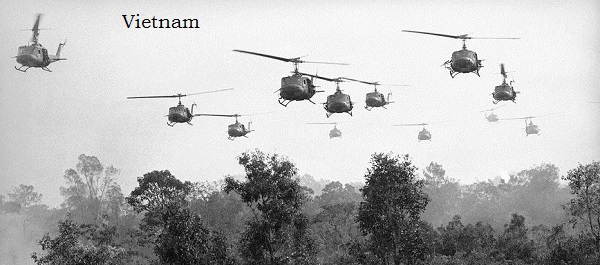


Cerro Gordo County Iowa
Part of the IAGenWeb Project
|
The Globe-Gazette
 The Globe Gazette will publish 50 stories — starting on Veterans Day — about North Iowa’s Vietnam Veterans. The stories will appear on Sundays and Wednesdays. We’ll culminate this "They Served With Honor" project with a special section (publishing on the day before Memorial Day) that will include all of the profiles. It will be great keepsake and resource for family members, educators and part-time historians.
by Molly Montag, December 13, 2015
Waugh, 68, of Clear Lake, worked more than three years as an aircraft mechanic at Norton Air Force Base in San Bernardino, California, from June 1967 to December 1970. He and his crews inspected and repaired C-141 cargo planes going to and from Saigon. "I look back now and I think, well, I didn't do much," Waugh said recently. "But then I think about it and yeah, I did. You know what I mean? I did do a lot. Just, on my part. What I did was important." The inner conflict? Waugh fixed planes. He didn't ride one of them to the front lines and fight. "I still wish I would've went to Vietnam," he said. "I still wish that. Now, maybe I won't be here today, either. Maybe I wouldn't have a leg. I don't know." Waugh, of Ohio, volunteered for the Air Force on the advice of his brother. Expecting to be drafted, he wasn't surprised when a draft letter arrived a few days after he signed up with the Air Force. He followed his brother's advice a second time and volunteered to do basic training in Amarillo, Texas, rather than a larger base. He remained at the Texas panhandle air force base for technical training, and then was sent to Norton Air Force Base in California. At Norton, he and his crew performed 45-day and 90-day inspections of the cargo planes. Waugh worked the night shift. It was a detailed process. The night shift would remove all the access panels to the plant, readying it for inspection. When the inspection was completed, the crews would begin repairs. "We would get the aircraft, tow it out on the flight light line and then start to work on it and fix all this stuff that they had found during the inspection," he said. One of Waugh's jobs was to go through a log book and assign work from the various shops. When the repairs were completed, he cleared the work with the plane's crew chief before turning the cargo plane back over to its crew. "He'd say, 'Well, Sarge, she's in good shape. I'll take it,' and they would take charge of the aircraft," Waugh said. "So I'd pull my guys off and we would go work on another one." He loved it. "I felt like I was doing something," he said. During the work, he sometimes got a glimpse of what was in the planes. The flights brought servicemen and supplies to the battlefield, but they also brought things back from the front lines. Once, Waugh saw body bags. They were stacked on racks in the hold of the plane, headed for the government morgue. He couldn't help but think of the young marines he'd seen come through Norton on their way to Saigon. "You see that plane with all the body bags and maybe two or three weeks before that we'd be out ther on the flight line and there would be marines sitting over on the flight line getting ready to board a plane to go," he said. "They had backpacks on, their guns, helmets. Sitting on the flight line - just sitting there a couple of hours." It was an unsettling feeling, wondering if any of those young Marines that came through Norton were on that plane. And he'd lost friends in the war. "They're baby-faced kids just like me," he remembered thinking. "They're going over there and fighting and a month later you see a plane come in and you wonder." Moments like that made him feel like he should have been fighting in Vietnam, not fixing planes. Fifty years later, it still lingers. He thought a bit, trying to explain why he feels that way. In the end he settles on it being a matter of "honor to the country." "That's the way I feel about it. Like if there was a conflict now and they needed people, I would volunteer to go do what I could do. Even at 68, I would still go do that," he says. "They wouldn't take me probably, but you know what I mean? But, I would still do what I could at home." Photograph courtesy of Globe-Gazette
|